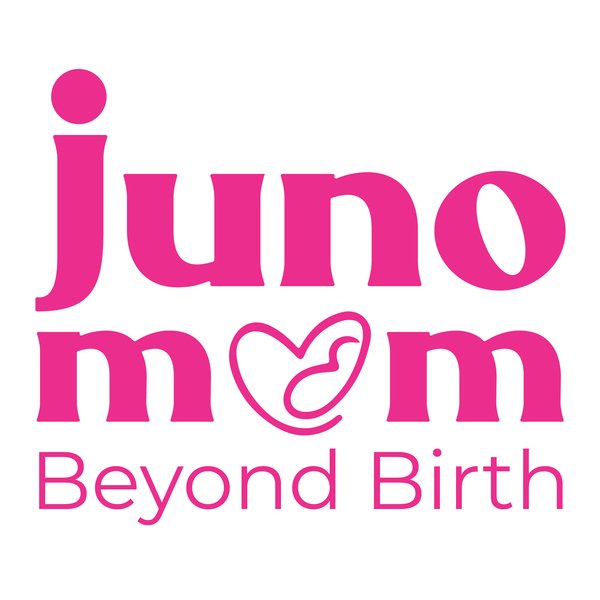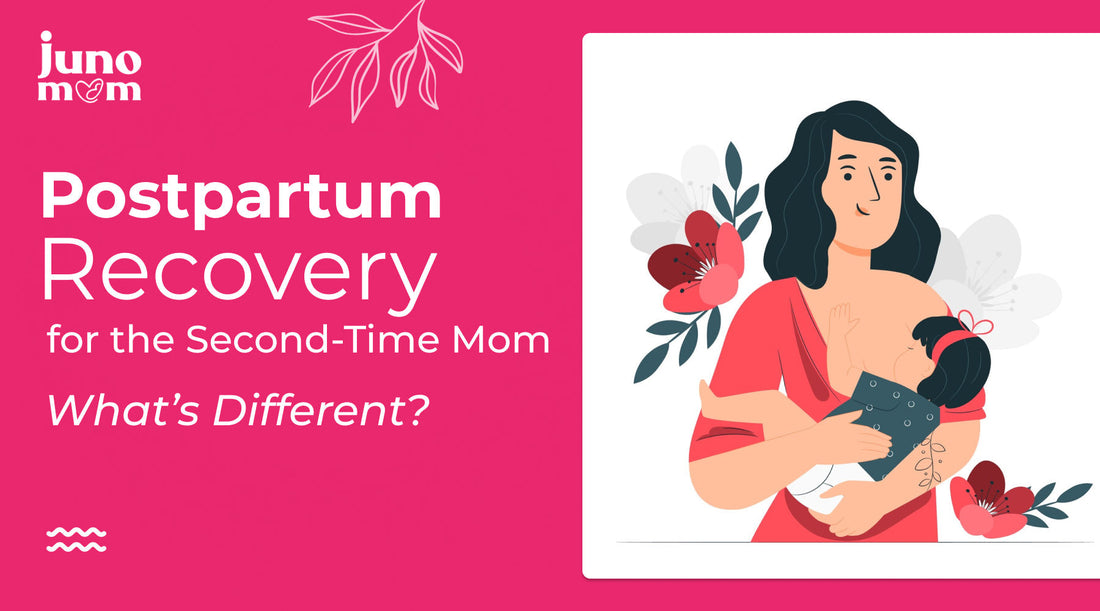You already know the drill, you’ve been through this earlier and you have it all experienced. We’re sure you know a lot about postpartum recovery as you had first-hand experience, but we don’t want you to compromise on any of your basic essentials. We want you to have it all within your hand’s reach.

The postpartum phase is a mix of physical recovery, emotional adjustments, and navigating life with a newborn. You have been through the phase of postpartum with your first baby and you know it all unfolds like an unknown thing. For second-time moms, it can feel familiar yet surprisingly different. This blog guides you through what’s unique about postpartum recovery after your second delivery.
Physical Recovery After Second-Time Delivery
-
Healing After Childbirth
Whether it’s a vaginal delivery or c-section, recovery might feel different this time. After vaginal delivery, you may experience more noticeable perineal discomfort or swelling, while c-section recovery may involve managing incision pain again. Your body might also heal faster since it’s already been through this process before. As you’re familiar with all the pain and soreness, you don’t have to compromise with comfort, you must still prioritise your well-being until full recovery.
-
Stronger Postpartum Contractions
After birth, you might feel intense uterine contractions, known as afterpains, especially during breastfeeding. These are more pronounced in second-time deliveries as your body works harder to shrink the uterus. Your body has already gone through the experience earlier but it still needs equal time for recovery.
-
More Physical Fatigue
Handling a newborn while caring for an older child can drain your energy. Adequate rest, when possible, and asking for help can go a long way in maintaining your energy. As you have more responsibilities now, taking rest this time around might feel more difficult than your first time.
Emotional Changes: The Second-Time Experience
-
Managing Postpartum Emotions
Hormonal changes during the fourth trimester may feel similar or more manageable since you’ve experienced them before. However, the demands of managing two kids can increase feelings of overwhelm or anxiety.
-
Guilt and Splitting Attention
It’s common to feel torn between giving attention to your older child and bonding with the newborn. This is a natural part of the transition, and involving your older child in caring for the baby can ease this guilt.
-
Increased Confidence
As a second-time mom, you may feel more confident in recognising baby cues, managing feeding, and tackling sleepless nights. This experience often makes the transition smoother.
Feeding and Milk Supply
-
Breastfeeding Challenges
Breastfeeding can sometimes be easier the second time, but challenges like sore nipples or cluster feeding may still arise. Hydration and proper latch techniques can help.
-
Tandem Nursing or Bottle Feeding
If you’re nursing both your newborn and older child, ensuring proper nutrition for yourself is key. Alternatively, bottle-feeding can also be a practical choice to share the workload. It will seemingly get titring eventually, so take proper rest and ensure a healthy diet.
Juggling Two Kids
-
Balancing Responsibilities
Caring for a newborn while keeping up with an older child’s routine can feel like a juggling act. Establishing a schedule for naps, meals, and playtime helps maintain a balance. Let your partner care more for the older child and divide the responsibilities for balancing it out.
-
Creating a Support System
Lean on your partner, family, or friends for help with household chores, meal prep, or babysitting. Don’t hesitate to ask for assistance—it takes a village!
-
Self-Care Matters
Even a few minutes a day for yourself can refresh your mind. Take a walk, meditate, or simply enjoy a cup of tea to recharge. Also, give at least 15 minutes of your day to your older child, it will reduce the inner guilt of not being able to manage both kids. It will keep your nerves calm.
Postpartum Essentials for Second-Time Moms
-
Pack a Postpartum Kit
Stock up on essentials like maternity pads, belly binders, and nipple creams. These items are lifesavers for managing physical recovery after delivery. If you’re recovering physically ell, half of your tension reduces and emotional recovery becomes easier. Pack it all with the Juno Mom Postpartum Kit, all in one kit.
-
Comfortable Clothing
Loose, breathable clothes, nursing bras, and comfortable underwear are a must for your postpartum wardrobe. Pack it before time, you never when you might have to rush.
-
Nutritional Support
Prepare easy-to-cook meals, focus on a protein-rich diet, and stay hydrated to speed up recovery and maintain energy levels. Especially when you are going to have two kids to care for, you must take care of your diet.
Common Challenges for Second-Time Moms
-
Physical Strain
You may notice lingering back pain or pelvic floor issues from the previous pregnancy. Postpartum exercises like gentle stretches or pelvic floor therapy can help, using abdominal binders for back pain and reducing abdominal stress.
-
Comparing Recoveries
Every postpartum journey is different. While your first recovery may have been easier or harder, accept that this time is a new chapter. Do not compare your phases, enjoy and be in present.
Postpartum Red Flags: When to Seek Help
Watch for symptoms like:
- Fever, heavy bleeding, or pain in the abdomen.
- Extreme fatigue or signs of postpartum depression.
- Difficulty with breastfeeding or caring for your newborn.
Your healthcare provider is your best resource for addressing any concerns during this period.
Conclusion
Postpartum recovery as a second-time mom comes with its own set of joys and challenges. While the experience might be more familiar, balancing two kids, managing physical recovery, and navigating emotions can feel overwhelming. Embrace the changes, lean on your support system, and give yourself grace as you adjust to this new phase of maternity. Your journey is unique, and with the right care and mindset, you’ll navigate it beautifully.



